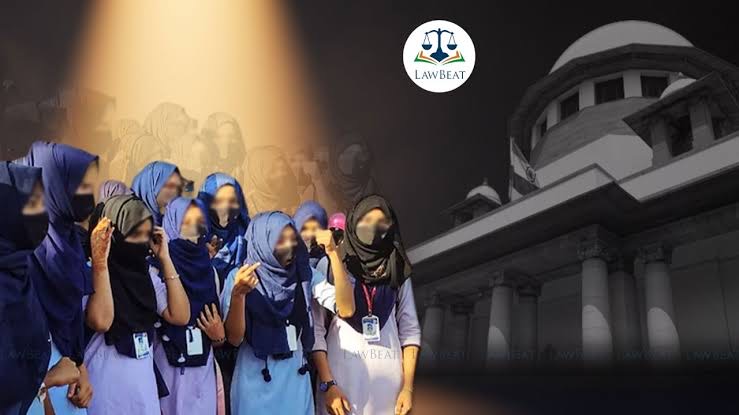“Karnataka government order blatantly partisan & communal”: All India Muslim Personal Law Board challenges Hijab judgment

The All India Muslim Personal Law Board has challenged the judgment of Karnataka High Court holding that Hijab is not an essential religious. In its plea it has stated that the Certain sporadic groups started ‘heckling’ Muslim girl students practicing Hijab in December 2021 and when the heckling escalated, the Government issued the Government Order dated 5th February 2022. The plea states that the GO was is “blatantly partisan and has a communal colour and was passed only to appease these hecklers.”
The plea further states that the Karnataka High Court has dismissed all the petitions after framing and deciding four erroneously framed questions. According to the plea the entire arguments and submissions by all the parties before the High Court revolved around the legality and effect of the Government Order issued by the State which came into public domain subsequent to heckling of Muslim girls by ‘religious groups’. The plea states that “Ironically, the impugned government order was upheld as being in consonance with “constitutional secularism” ignoring that the same leads to discrimination against Muslims in General and Muslim girls in particular whose right to education is denied.”
According to the plea the High Court has not addressed the issue as to whether or not it is necessary to consider the doctrine of essential religious practice in a case where the petitions have asserted their Fundamental Rights under Article 25(1) and 19(1)(a) of the Constitution and consequentially the judgment deprives the constitutional rights of Muslim girls to practice Hijab along with the school uniform. The plea states that the High Court has laid too much emphasis on propositions which results into discrimination, exclusion and overall deprivation of a class from the mainstream public education system along with encroaching upon an individual’s sacrosanct religious belief.
The plea states that the judgment lays too much emphasis on making the outlook of students “uniform,” while the idea of bringing uniformity cannot be placed on such a high pedestal which amounts to negation of other constitutional of different groups, there by ignoring the doctrine of proportionality. According to the plea, it is a case of direct discrimination against Muslim girls and that “the High Court has created distinction between the principles laid down in the case of Bijoe Emmanuel by giving different contextual meaning (as a case of discipline) and on the other hand the practice of Hijab, is reflected as if it was a case disturbing the entire uniform that too when this minor variation (of covering the head like the Sikh’s do) can be reasonably accommodated within the constitutional norm being part religious practices.”
According to the plea the determination of essentials under the principles of essential religious practice (ERP) fell within the complete autonomy of the religious denomination in the matters of deciding as to what rites and ceremonies are essential according to tenets of a religion and not within the discretion of courts. The plea states that over a period of time, the Courts have completely taken upon themselves the task to determine what are the essentials and integrals of any and every religion practiced in our country “for the purpose of regulatory control over them by the State authorities.”
The plea claims that the High Court, while dealing with the issue of protection of the fundamental rights, has given an erroneous interpretation to the concept of intelligible differentia by grouping all the students in uniformity without acknowledging it is against the prevailing practices in different parts of the country. According to the plea the High Court has relied upon the judgment of the court in the Sabarimala case of which a review is pending consideration before a nine judge bench.
The plea states that the Court lacked institutional capacity to decide essentials of religion, correct articulation of the issue and that the appropriate questions in the given case would be to determine the answers to the following questions
“ i) Whether it is necessary to investigate essential religious practice in the matter as the Petitioners have claimed the fundamental rights guaranteed under Articles 25(1) and 19(1)(a) of the Constitution?
ii) If the answer to the aforesaid issue is in the affirmative, then whether the Petitioners have justified the practice of wearing Hijab in Government Pre- university College / Educational Institution in Karnataka as essential part of Islam?”
According to the plea as far as interpretation of scriptures in the holy Quran are concerned there is a consensus amongst religious scholars of all schools of thought namely, Hanafi, Maliki, Shafai and Hambli that practice of Hijab is ‘wajib’ (mandatory), a set of obligations, which if not followed, he/she will commit “sin” or become a “sinner”. Wajib has been kept in the “First Degree” of obedience. A detailed affidavit to this effect shall be filed in due course.
Case title: Munisa Bushra Abedi Vs State of Karnataka
